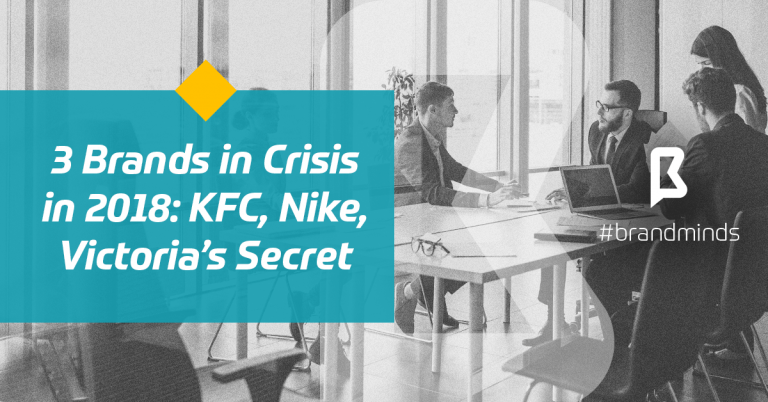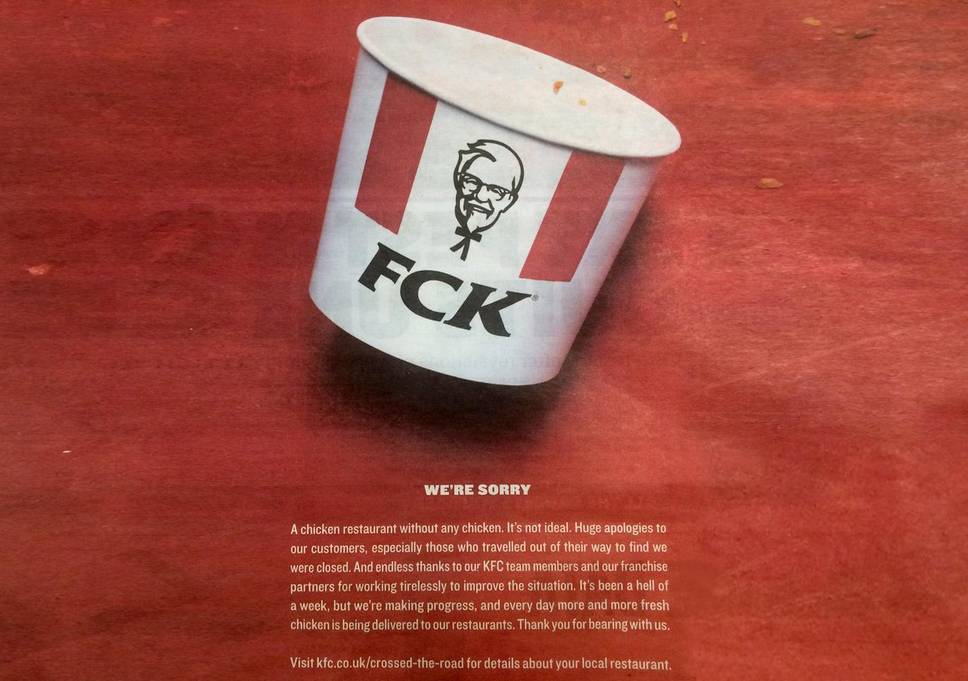The crisis of Marketing in a crisis
With a fifteen-year experience in marketing, Raluca is the Marketing Strategist and Founder at Utopic Brain, a Marketing & Creative Boutique. She is also a published author and photographer.
When facing a shock, we usually freeze. Our minds, our souls and our reactions pause to reflect, to realign, to recover.
We take our time to accommodate what’s coming towards us in order to be able to access the parts of our habits that fit the challenge, when in fact … it could be the other way around.
But changing a habit is not as easy as it might seem. It’s only natural that crises shock us in a way that we either need to distance from the stimuli or madly and unconsciously confront it with our gut feeling and educated guess (a sister of the gut feeling).
Denial, anger, negotiation, depression, acceptance are statistically the five emotional steps that accompany us in the ladder climbing difficulties.

Concentric paths. When my circle got smaller, my vision got clearer. Photo by Raluca Mihaila.
Marketing is all about emotions
Marketing, besides an apparent emotionless process, is all about emotions. Although it is supposed to be a frame through which anyone can build, promote, sell and resell their products and services, it really comes down to people’s emotions, needs and desires, hence it can be considered the best and the most complex crutch you can lean on when you have no idea about what to do, where to go and why everything happens.
Unfortunately, many companies get stuck somewhere between the anger and negotiation and can’t go any further using Marketing tools as the beginning of a cure.
Why?
Because people freak out and what drives huge parts of company growth (a.k.a. marketing) is left behind operations, IT, production, legal aspects and generally speaking, cost-cutting. One of the most important tools a company has when in distress is considered useless.
Just like in real life. Whenever we face deaths, professional traps, shaming, depressive periods, breakups, bullying (all considered emotional shocks) we usually stop talking to other people and we start living in our own heads willing to reconnect with ourselves; when in fact, talking about it, being honest and opening up, understanding what went wrong, admitting our weaknesses or sufferings and trying to overcome them through conversation would be a way better medicine.
The reasons for this gap between what we should do and what we actually do lies right in the middle of reason and emotion.
[bctt tweet=”Marketing Strategist & Founder @Utopicbrain.ro Raluca Mihaila: Marketing has more to do with strategic thinking, emotional balance and putting yourself out there than it has with communication alone.” username=”brand_minds”]
How can Marketing help in a crisis
If you run a Marketing department during a crisis, the first ones you should think about are people.
And this, from a dual perspective: your own (from the organization/team) and outside of the organisation (your clients and your non-clients).
Regardless of the intensity, a crisis impacts everyone, therefore having the wisdom to zoom out the context and access your better judgement and be able to see beyond your own yard is golden.
People are the starting point of everything: innovation, production, workforce, systems, creativity, selling, buying.
People from within and outside of your organization might have been won over when everything was running smoothly, but they expect you to be there for them when things go wrong as well.
Marketing is an unwritten responsibility of any market player and has way more to do with strategic thinking, emotional balance and putting yourself out there than it has with communication alone.
The responsibility to create something of value, to have ethics, to make and keep promises, to be sustainable, to build communities and be there for them at all times, to be profitable, to be trustworthy and above all, communicate on all of them. When trusted, you catch attention.
Being there for your (non)clients & employees
Clients and employees gained prior to the crisis are there to stay … if you keep them. How?
Be honest, keep calm and makes simple plans. While remaining calm, communicate internally the current status, possible scenarios, true facts, clear information and actions that will take place in order to prevent chaos. Don’t be afraid to say unpleasant things, as long as you keep everybody as safe as possible. It’s the same with the clients.
Connect. Overcome your fears with lucidity and creativity and activate your brand community for solutions. Isolation is not a good option. Ask hard questions and be ready for the answers (what you can change, where you can contribute, how to be better).
Remind the ethics. Usually, during a crisis, the cost of living remains the same, if it doesn’t go up. Don’t give in to the temptation of opportunistic behaviour and increase prices, cut competition off or engage in immoral activities. It is a toxic approach killing your reputation and disengaging for your brand lovers.
Being there for the product
Open doors to the competition. Show, in all honesty, industry empathy and solidarity. Together will always be better than on your own. Try to openly identify what’s best for you-all and engage other players in joining you in the process of finding solutions.
Use the power of networking. Provided you were careful enough to make friends and connect with people over time, it’s now the moment to “collect” on your extended community. Your business is not an island, but a part of the whole, so asking people from various fields how they handle the situation, if you can be of help and how will raise awareness.
Stay close to the press. Keep the press informed of your decisions and prevent fake news arrival.
Keep the standards. Don’t allow anything less than what you offered before the crisis. No shock is big enough to motivate poor quality. If, though, you have to downgrade temporarily, try the creative (and honest) advertising approach. For example, a special line of “inferior” very good sneakers can be Austerity line: Cheap has never felt better while walking through the crisis. (limited stock, the crisis will not last forever).
Find the big idea. Every brand has a core element of specificity through which innovation occurs in a context of real, authentic, contextual milestone. If you keep yourselves in the legit area and don’t pretend to know what you don’t, people will listen to you, especially if you use the whole Marketing mix.
Being there for the profit
In order to keep making money, you have to survive first. Emotions connect people, but in the end, everybody wakes up and it’s lucidity that makes them stay.
Genuine CSR. Caring without showing off is the most honest way to help the community. Even not PR-ed, good news circulate and, in the end, humbleness melts the coldest hearts, so new clients will ultimately join you.
In power, still kind. If you’re still in a position of power and perhaps the crisis boosts your company’s growth, you can contract services from qualitative companies* struggling to survive. After the tough moment passes, they will remember you were there for them.
*It’s important whom you help during a hard moment. Crises are, beyond anything else, readjustment mechanisms of the free market, so it helps to distil the fraud from morality, the good product from a bad product. Make sure you offer a helping hand to someone who deserves to survive.
Take a step back. Scan the market. See what the others do. Many challenges are opportunities in disguise and a crisis is a good moment to realign products and services, to spot outdated products or unprofitable lines.
See experts, but think for yourself. They don’t know either what the future will bring, so don’t rely on their confirmation biases, but rather use theirs to escape your own.
Conclusion
Not being impulsive in moments of struggle is as important as listening to your better judgement when what the other people say don’t make sense.
It’s important to keep in mind to do good and talk about it, no matter the moment, no matter the struggle.
And one more thing: in this order.
Join the Conversation
We’d love to hear what you have to say.
Get in touch with us on our LinkedIn Group, Facebook Group or Twitter.
Getting us Through the Crisis: 10 Ways to Build Mental Resilience
The Coronavirus (COVID-19) is seriously challenging our social, economic and business stability, as well as our freedom of movement and working practices.
It is not surprising then that this is having a detrimental impact on our mental health.
Our human vulnerability and ability to cope with this threat has been exposed. Naturally, people are fearful, anxious, uncertain and some of us are panicking.
This is clearly a time to take positive action and follow necessary precautions, as well as keep a tight rein on our emotional reactions.
It’s important to recognise the dangers and to acknowledge our fear and anxieties, rather than be driven by them.
This means constructively handling our health and stress, developing ways to cope and not allowing our fears and irrational reactions to get out of hand.

The Coronavirus (COVID-19): 10 Ways to Build Mental Resilience
During a crisis, it’s important to know ways in which we can adapt and strengthen our resilience, in order to maintain good mental wellbeing.
1. Make Healthy Home-Work Adjustments
Set and maintain your personal & professional boundaries. Managing time spent on work and socially, in a way that best suits your present needs & situation can help to reduce pressure and conflict.
Schedule time with family, friends & colleagues for home/remote activities, such as mindfulness, yoga, meditation, listening to music, dancing, reading, book reviews, or just chatting. These can help to reduce stress and lift your mood.
Avoid putting pressure on yourself and thinking negatively as this is counter-productive.
2. Perceive Things as Challenges Rather Than Problems
When presented with a problem focus on finding a way forward and attaining a clear goal.
Having a constructive view on the present situation and working towards a specific outcome enables you to positively draw on all of your resources, in order to get you to where you need to be.
3. Cultivate a Positive Mindset
Exposing yourself to positive internal and external messages can help build confidence and counter our negative bias, supporting a more productive mindset.
4. Establish Good Sleep Habits
Sleep is essential for your overall physical and mental health and well-being.
Good sleep helps to build your resilience in dealing with stress and anxiety.
Create Healthy Sleep Routines & Behaviour:
✅Get up and go to bed at regular times
✅Avoid heavy meals, exercise and using screens, a few hours before going to bed
✅Ensure your bedroom is dark enough and a comfortable temperature
5. Set Realistic Expectations
Reflect on the expectations set by yourself and others.
Examine how realistic these are and adjust them according.
Identify manageable steps in meeting expectations. This helps to limit disappointment and stress, as well as enabling you to achieve your goals more easily.
6. Eat Healthily & Remain Active
Eating well and being active will help to keep up your energy, strengthen your immune system and assist to maintain your physical and mental fitness.
7. Beware of Your Alcohol or Drug Intake
During crisis or times of high stress, it can be easy to be tempted into increased or improper alcohol or drug use. Remain vigilant and keep busy. This will enable you to remain focused and avoid creating or worsening your mood or situation.
8. Stay Safe & Stay Connected
There is a huge amount of advice being given about how to keep yourself and others safe. It is not only wise but can be lifesaving to follow informed messages and official sources.
To help cope with isolation and physically distancing regularly check-in and remotely connect with others. This enables you to gain reassurance and companionship through being connected and supported.
9. Talk About Your Feelings & Seek Support
Sharing your experience can be a great relief. This enables you to gain understanding and support, assisting you to deal better with your situation and feelings.
10. Self-Care
Monitoring your mental health, along with engaging in actions to reduce stress, such as exercise, taking breaks, healthy eating habits, having fun, meditation & listening to music, can help lift the mood and maintain better health.
Reach out for support if you notice signs such as prolonged low mood, excessive anxiety, increased anger and aggression, anxiety and panic attacks, obsessive thinking and behaviour, loss of hope or interest, feeling or thoughts of self-harm.
We should not underestimate how much the threat and difficulties, presented by this crisis, can deeply unsettle and distress us. This can exacerbate conditions and seriously impact those who have already been experiencing a poor mental health or mental illness.
The list at the end of this article provides information on mental health support options (UK Only).

The Road Ahead
Like never before, has there been an essential need for taking care of our mental health.
This is a top priority for everyone. Our human limits and mental capacity are being strongly tried.
Coming through this crisis well will require significant support, commitment and investment in our mental well-being and resources. We must now rise to the challenge.
Seeking Mental Health Support (UK)
For anyone seeking support with their mental health here are a range of available support options.
Gov UK Mental Health Support
Provides advice to support mental health during the coronavirus (COVID-19) Crisis. People struggling with their mental health during the coronavirus (COVID-19) outbreak will be offered additional online support and practical guidance to help them cope:
New Advice to Support Mental Health During the Coronavirus Outbreak
NHS Mental Health Support Helplines Resource
Provides a national list of organisations supporting people with a wide range of mental health problems and mental illnesses: Mental Health Helplines
Shout – TEXT 85258
Shout is the UK’s first 24/7 text service, free on all major mobile networks, for anyone in crisis anytime, anywhere. It’s a place to go if you’re struggling to cope and you need immediate help.
Join the Conversation
We’d love to hear what you have to say.
Get in touch with us on our LinkedIn Group, Facebook Group or Twitter.
3 Brands in Crisis in 2018: KFC, Nike, Victoria’s Secret

Crisis. A word feared by all brands. No brand wishes to experience crisis and yet unexpected events, reactions or consequences do happen. What sets great brands apart from the rest is the way they manage crisis.
Let’s see how KFC, Nike and Victoria’s Secret managed crisis in 2018!
KFC
In February 2018, KFC runs out of chicken which leads to 900 restaurants across UK and Ireland closing their doors for a few days. The reason? DHL, KFC’s current shipping agent failed to deliver fresh chicken to the said restaurants.
Reactions
Finding their favourite fast-food restaurants unable to sell their delicious chicken menus, people didn’t hold back on expressing their disappointment. They turned to social media to cry out their frustration under #KFCcrisis.
Others contacted police in large numbers.
Please do not contact us about the #KFCCrisis – it is not a police matter if your favourite eatery is not serving the menu that you desire.
— Tower Hamlets Police (@MPSTowerHam) 20 februarie 2018
How did KFC deal with the crisis?
- The company set up an online service where those who couldn’t wait for fried chicken could find the nearest branch that remained open.
- The company published an apology ad as a full-page advertisement in UK newspapers.
FCK
WE’RE SORRY
A chicken restaurant without any chicken. It’s not ideal. Huge apologies to our customers, especially those who travelled out of their way to find we were closed. And endless thanks to our KFC team members and our franchise partners for working tirelessly to improve the situation. It’s been a hell of a week, but we’re making progress and every day more and more fresh is being delivered to our restaurants. Thank you for bearing with us.
Visit kfc.co.uk/crossed-the-road for details about your local restaurant.

Conclusion
KFC crafted an apology ad using humour and honesty in an authentic way which attracted a lot of media coverage and brand love from its customers.
NIKE
Nike published its Dream Crazy ad on September 5, 2018 with Colin Kaepernick as the narrator. In just three months, the video gained over 27 Million views making it the brand’s most viewed ad on YouTube.
Colin is a former NFL player who attracted outrage from the public when he protested against police brutality by kneeling during the American anthem. Because of his controversial profile, Nike’s ad received a lot of media coverage, mixed reviews and strong emotional feedback from the public.
Reactions
Here are some of the reactions Nike received in the days after the ad was launched:
- Some people set their Nike sneakers on fire;
- #boycottnike became a trending hashtag on Twitter;
- Others cut the Nike logo off their socks;
- Nike’s share price dropped by 3.2% to finally go up to an all-time high, earning the company $6 billion.
Nike is on the right side of history with this ad.
Spike Lee, Film Director
Realeyes, the emotional intelligence platform analysed the overall sentiment towards Nike by looking at the ad’s viewers’ comments.
What did the consumers really think of Dream Crazy?
Here it is according to Realeyes:
- 50% of negative verbatims are about Kaepernick, not the ad itself;
- Negative emotions are due to narrative, not Kaepernick;
- Men garnered more negative emotions;
- Women instinctively more positive towards the ad;
- Middle-aged demographic the least positive.
Some analysts were asking this rhetoric question:
What was Nike thinking about?
The answer is: although Dream Crazy divided the public into supporters and detractors, Nike knew exactly what it was doing.
Actually, the brand has a 30-year experience with controversial, out of the mainstream ads. Dream Crazy is the epitome of a series of risky ads which began with the first JustDoIt ad published back in 1988. Over the next years, the brand’s ads supported various social subjects such as gender equality, woman empowerment, sexual minorities, ageism, disability etc. With each controversial ad, Nike revenues have grown exponentially.
How did Nike deal with the crisis?
Faced with the outrage of some of his customers, Nike has taken no steps to address this crisis.
Nike doesn’t shy away from risk and controversy because starting the conversation on important social subjects stands at the core of its brand values.
It’s safe to say the company has run the numbers before publishing the ad and was ready for any backlash it might have had. According to an ESPN Twitter poll which asked their followers how the ad affected their decision to buy Nike products: 29% said they are more likely to buy Nike products, 21% say they’re less likely and 50% said their decision has not been affected.
Conclusion
Dream Crazy was aimed at the younger generations with the purpose of increasing their fan base. Millennials are known to love and support brands which are committed to their core values and are not shy to stand by them.
According to Edison Trends, Nike’s online sales jumped 25%.
It looks like Nike have taken a controlled risk and came out on top.
VICTORIA’S SECRET
Victoria’s Secret has been experiencing brand crisis for the past few years and its management is slow to even recognize it let alone address it effectively.
Management myopia
The company is currently facing decreased sales and shrunken profit due to management myopia. Here on the BRAND MINDS blog, I have written about myopia as an early symptom of brand failure in our Failure Series articles: Nokia and Kodak.
Far from me to assume the role of Pithya, but as history has shown, if the company loses its grip on reality and doesn’t embrace change, the chances of survival are getting smaller every year that goes by.
Victoria’s Secret has never changed, but the world around them has. I was walking through the subway station the other day in Manhattan and I looked at the ad for the Angels’ ‘fantasy’ runway show and I said to myself: ‘That could be today, or 30 years ago.’
Michelle Cordeiro Grant, former senior merchant director at Victoria’s Secret via theguardian.com

image source: victoriassecret.com
Over the past few years, the company was faced with backlash from the public regarding various subjects such as competitive anorexia that Victoria’s Secret models are suffering from, Photoshopped ad campaigns and the Victoria’s Secret show which the US’s National Organization of Women (NOW) dubbed as “softcore porn infomercial” in 2002.
Mr. Razek’s Vogue Interview
The latest scandal which brought Victoria’s Secret into the spotlight is the interview of Ed Razek, CTO published by Vogue Magazine in July 2018. In this interview, the brand’s problems became clear to everyone: lack of inclusiveness, lack of sexual diversity, disengagement with its customers’ needs and expectations, outdated marketing.
Mr Razek’s words attracted the outrage of female public. Essentially, Mr. Razek said that Victoria’s Secret supports the woman as long as she portrays herself as the object of the heterosexual white male’s fantasies.
Victoria’s Secret is losing share to other brands because it’s out of touch. The way it’s marketing is out of touch. Women don’t want to be viewed as stereotypical sexy supermodels buying lingerie just to impress men.”
Paul Lejuez, retail analyst focused on L Brands via nytimes.com
Victoria’s Secret, founded by Roy Raymond in 1977 is seeing increased competition from other lingerie brands such as ThirdLove, Aerie and Savage x Feinty by Rihanna, startup companies founded by women.
These companies feature real women in their advertisements, of all sizes, shapes and colours. While Victoria’s Secret designs its products with the white male in mind, their products are designed to meet women’s needs of comfort, beauty and sexiness.
Following the Vogue interview, ThirdLove published an open letter and launched a petition to boycott the Victoria’s Secret fashion show this year in an attempt to force the brand to “be more diverse and inclusive of body shapes and sizes on their runways.”
Women are tired of trying to comply to Victoria’s Secret’s narrow standards of sexiness and are looking for brands which support a healthy body image.
How did Victoria’s Secret deal with the crisis?
The first step following Mr. Razek’s interview was Jan Singer stepping down as the company’s CEO. No other measures have been announced so far.
Conclusion
The company is in dire need of re-branding and re-evaluation.
Women have changed since the 1980s and if the brand doesn’t keep up with its clients, it will get out-marketed and out-competed by other lingerie brands.
Although a lot smaller than Victoria’s Secret, these brands are more in tune with their customers. And this is the winning recipe.
sources:
https://www.forbes.com/sites/andriacheng/2018/07/12/heres-the-real-problem-behind-victorias-secrets-dramatic-fall/#7ecb280a1054
https://www.forbes.com/sites/andriacheng/2018/11/19/victorias-secret-facing-a-slide-in-sales-and-profit-is-in-need-of-a-new-brand-pitch-fast/#15e79acf4d70
https://www.vogue.com/article/victorias-secret-ed-razek-monica-mitro-interview
https://www.teenvogue.com/story/thirdlove-response-victorias-secret-ed-razek-interview
https://www.forbes.com/sites/yolarobert1/2018/11/26/victoriassecretreplacesceo/#21bbeb246194
https://www.vox.com/the-goods/2018/11/8/18068148/victorias-secret-fashion-show-2018-history-controversy
https://www.theguardian.com/lifeandstyle/2018/nov/22/victorias-secret-show-angels-lingerie
https://www.telegraph.co.uk/news/2018/02/20/kfc-chicken-shortage-causes-chaos-police-tell-customers-stop/
